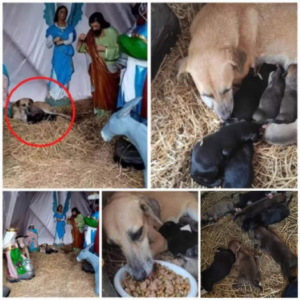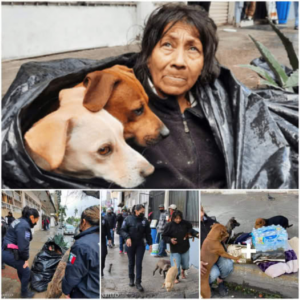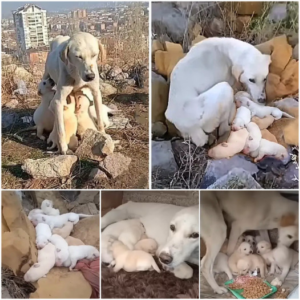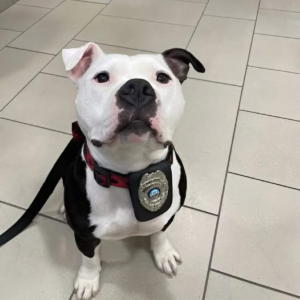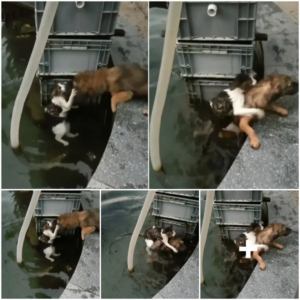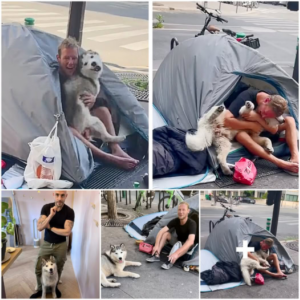In the corner of an abandoned alley, a dog lay motionless, his thin body blending with the shadows. His fur, once golden and vibrant, was now dull and caked with mud. His ribs pressed sharply against his skin, a silent testament to his days without food. He was a ghost of the dog he had once been, and even the spark of survival seemed to have left him.
When the rescuers arrived, he didn’t even lift his head. The sound of their approaching footsteps, the gentle rustle of a leash, and even the tempting aroma of food failed to stir him. His eyes, half-open and vacant, stared blankly into the distance as if he had already accepted his fate.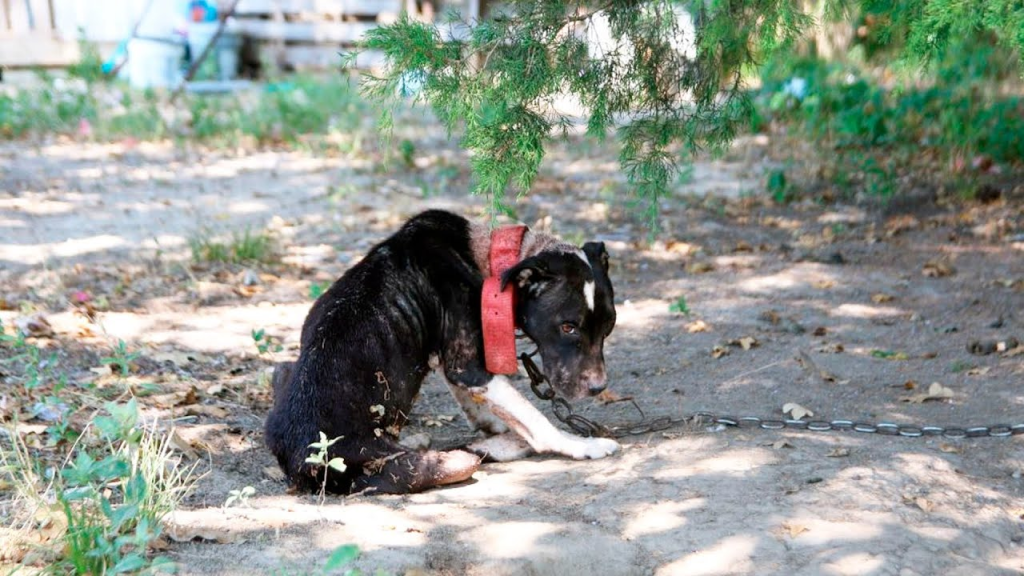
The team worked quickly but gently, knowing they were dealing with a soul on the brink of surrender. They wrapped him in a warm blanket, his frail body light as they carried him. Despite the comfort and safety they offered, the dog didn’t resist or respond. It was as if he no longer cared what happened to him.
At the veterinary clinic, they discovered the full extent of his condition. Severe malnutrition, dehydration, and infections had ravaged his body. But it was his spirit that worried the rescuers most. He refused to eat, barely moved, and avoided eye contact with everyone around him.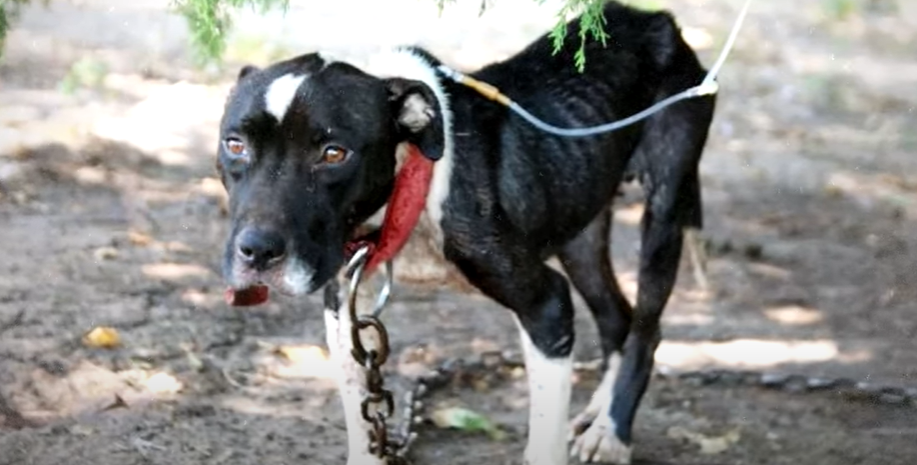
Days turned into weeks, and though his physical health began to improve, his emotional wounds remained deep. Other rescued dogs barked with joy, wagging their tails when the caretakers approached, but not him. He lay in his bed, silent and still, as if waiting for the world to pass him by.
The rescuers named him Leo, hoping the name might inspire strength. They refused to give up on him. Each day, they sat by his side, speaking to him in soft tones, offering gentle pats on his head. They brought him toys, treats, and blankets, anything to coax a reaction from him.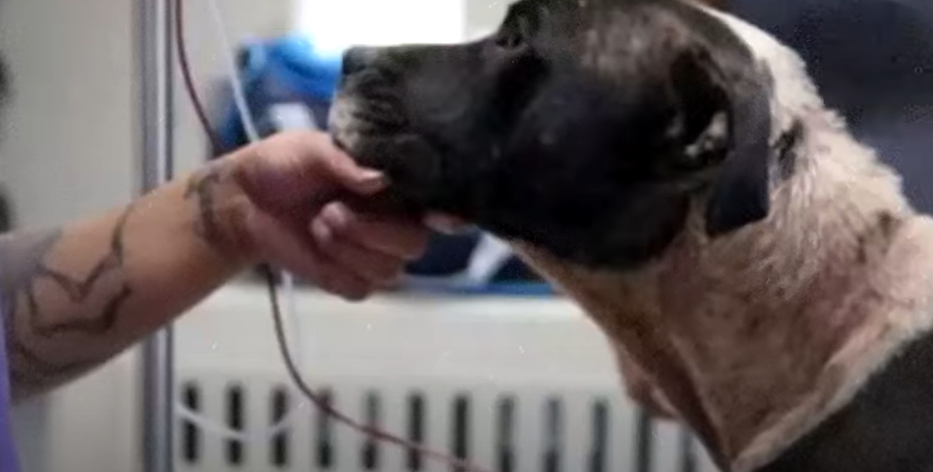
One afternoon, a small breakthrough happened. A young boy visiting the shelter sat beside Leo’s bed, humming a quiet tune. As the boy reached out his hand, Leo hesitated. Then, slowly and cautiously, he rested his nose against the boy’s palm. It was a small gesture, but for Leo, it was monumental.
The bond between the boy and Leo grew stronger over time. With patience and love, Leo began to trust again. He started eating willingly, wagging his tail faintly when the boy visited. His progress was slow, but each step was a victory.
Months later, Leo left the shelter with the boy and his family. In their home, he found the love and care he had long been denied. Though he still carried the scars of his past, Leo’s heart began to heal. He learned to celebrate life in small, beautiful ways—a wagging tail at mealtime, a contented sigh as he napped on a soft bed, a playful bark during games of fetch.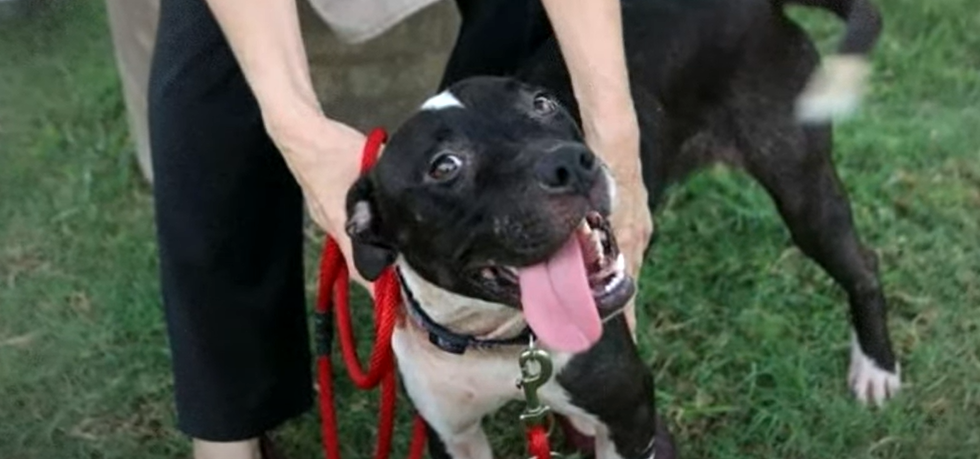
Leo’s story is a reminder that healing takes time and love, especially for those whose spirits have been shattered. Though he didn’t celebrate his rescue at first, his journey from despair to hope stands as a testament to the power of compassion and the resilience of the canine heart.
